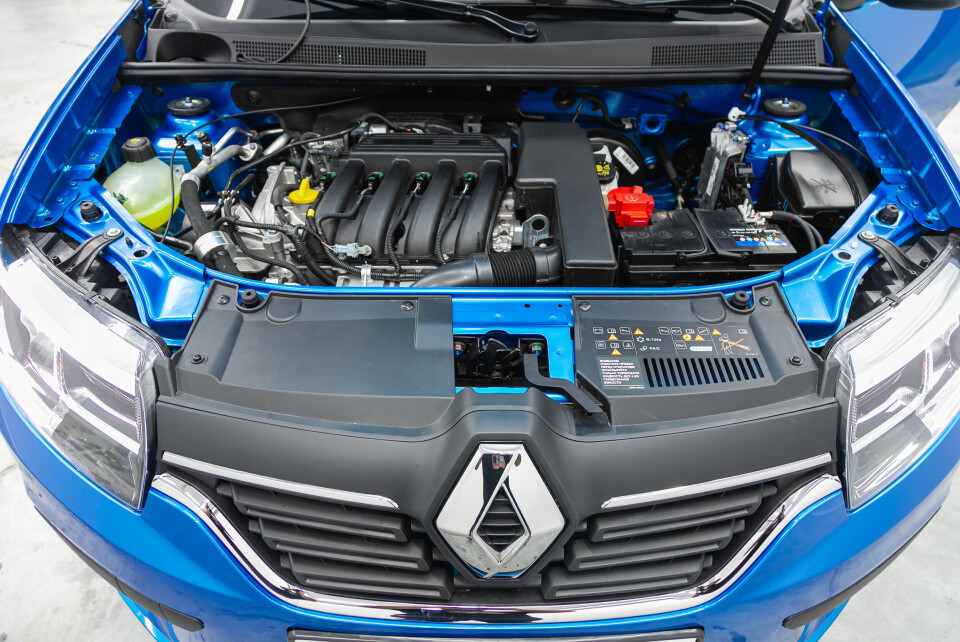-
Nestlé baby formula recall: French authorities criticised over response time
One infant died after drinking the formula although no causal link has officially been identified
-
French farmers begin major protest in Strasbourg
More than 700 tractors expected to park outside EU Parliament in two-day protest
-
Prime Minister to force 2026 budget through without a vote
Use of controversial Article 49.3 opens government up to vote of no confidence but opposition MPs unlikely to find enough support
Renault 'faulty engine victims' set Sunday deadline for payout deal
Lawyer and class action group say they will start court action if the manufacturer does not act now

A group of French drivers who claim faulty engines in their Renault cars lead to dangerous driving failures have given the car manufacturer a deadline of this Sunday (June 5) for it to propose a payout deal.
1,109 people filed a class action lawsuit last January against Renault after experiencing failing engines on its 1.2 TCE engines. Some claim engine failures left them fearing for their lives as they drove on motorways.
107,000 vehicles from Renault and its parent-companies Nissan and Dacia are estimated to be affected by the problem, according to the French manufacturer.
Read more: ‘I feared for my life as engine failed at speed on French motorway’
The ultimatum was set on May 16 by lawyer Christophe Lèguevaques who asked Renault to enter a negotiation-round to compensate victims.
In the document, Mr Lèguevaques warned of “guerilla” action if the demands were not met, indicating that the group would initiate judicial proceedings in two phases.
“I am expecting a communication from Renault by Tuesday morning,” he told The Connexion, adding that he thought Renault would keep stalling (Monday is France’s Pentecost’ holiday day.)
Mr Lèguevaques said a subpoena was ready to be filed should Renault not offer a deal.
“We are a grain of sand becoming a rock,” said Olivier Blanchet, the president of the ‘victimes du Motorgate’ association representing several hundreds of drivers, suggesting the class action was getting bigger and more problematic for Renault.
The class action name is intended as a play on ‘moteur’ (French for ‘engine’) and Dieselgate, from the Volkswagen emissions scandal.
Mr Blanchet is also the founder of ‘Casse moteur Renault/Nissan 1.2 TCe & DIG-T’, a three-year-old private Facebook group reuniting 6,700 people victims of failing engines from Renault, Nissan and Dacia and aimed at recruiting plaintiffs to feed into the class action lawsuit.
Two-phase judicial proceedings
Mr Blanchet said several plaintiffs outside of the class action lawsuit had independently sued the manufacturer and obtained financial compensation. He said the “timing” was difficult for Renault since it is bogged down with semiconductor shortages and late withdrawal from Russia.
Read more: French company Renault pulls out of Russia: Why has it taken so long?
The class action lawsuit plans two-phase court action between spring and autumn 2022 in the event of Renault refusing the settlement ultimatum.
The first phase, called “Discovery” - taken from the Anglo-Saxon law term - in which the class action will require Renault to produce a list of documents.
Mr Blanchet and Mr Lèguevaques said they possess internal leaked documents from Renault proving the manufacturer was aware of technical problems with its engines.
The second phase, called ‘Recovery’, is the official writ of summons to the criminal’s court. Mr Blanchet said the class action could be opened to European individuals by that stage.
Mr Lèguevaques said the class action lawsuit could be assimilated to the Ford Pinto lawsuits in which more than 117 lawsuits were filed against the manufacturer in connection with gas-tanks accidents in the late 70s.
He and Mr Blanchet said they were also weighing environmental charges after concerns about nitrogen oxides levels observed on Nissan Qashqai 1.2 DIG-T British vehicles in the summer of 2016 and January 2018.
Related articles
Experts can limit risk of a second-hand car purchase in France
France’s electric car for €100/month scheme: who is eligible?
























